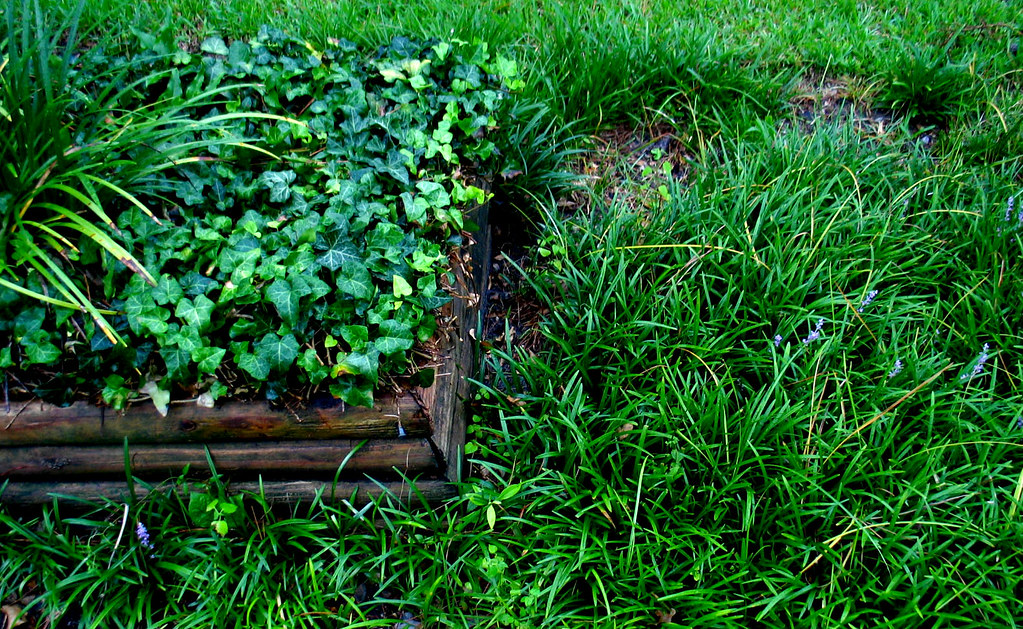
Best Fertilizer for Bermuda Grass. Bermudagrass or Cynodon Dactylon is a warm-season with fine-textured turfgrass that spreads laterally by stolons and rhizomes. This grass can withstand extreme drought, and it is durable and versatile turfgrass.
You can use this grass in many settings, including home lawns, utility turf, golf courses, and athletic fields. You can start by spreading seed or sprig, and it will quickly develop. You also need the best fertilizer for Bermuda grass to grow and thrive well.
It is traffic tolerance, tolerance to low mowing heights, make it ideal for areas that may be heavily trafficked.
Found in India, South America, southern United States, Australia, Africa, and India, the grass grows well in nearly all soil types.
Benefits of Bermuda grass
How to choose the best fertilizer for Bermuda grass
Never fertilize Bermuda grass (Cynodon Dactylon) that has not been overseeded. Apply ½ pound of nitrogen per 1,000 square feet in February and December. If you do not do a soil test, use a turf-grade fertilizer with a 3-1-2 or 4-1-2 ratio. You can use 12-4-8 or 16-4-8 NPK formulation.
Nitrogen
Nitrogen is the most important element for plant establishment, including grass. Deficiency of nitrogen must ve avoided by applying and adding large amounts of nitrogen to the soil.
Since you want a green color Bermuda grass lawn, nitrogen is a major part of chlorophyll to create greener leaf. Nitrogen can promote lush, vigorous growth and the establishment of an attractive and dense Bermuda grass lawn.
Over-fertilize your Bermuda grass lawn with nitrogen fertilizer can cause a diminished, lush, and rapid root system. However, a Bermuda grass lawn with a nitrogen deficiency will make the leaf turn yellow.
Potassium
With no potassium, your Bermuda grass would be yellowed and stunted. It is a macronutrient that helps the grass build thicker cell walls. Thicker cell walls will strengthen the grass plant so it can withstand heat, drought, cold, and disease.
Phosphorus
Phosphorus is essential for root health and early grass plant development. Phosphorus helps the Bermuda grass fight disease.
List of the Best Fertilizer for Bermuda Grass
1. The Andersons PGF Complete 16-4-8 Fertilizer
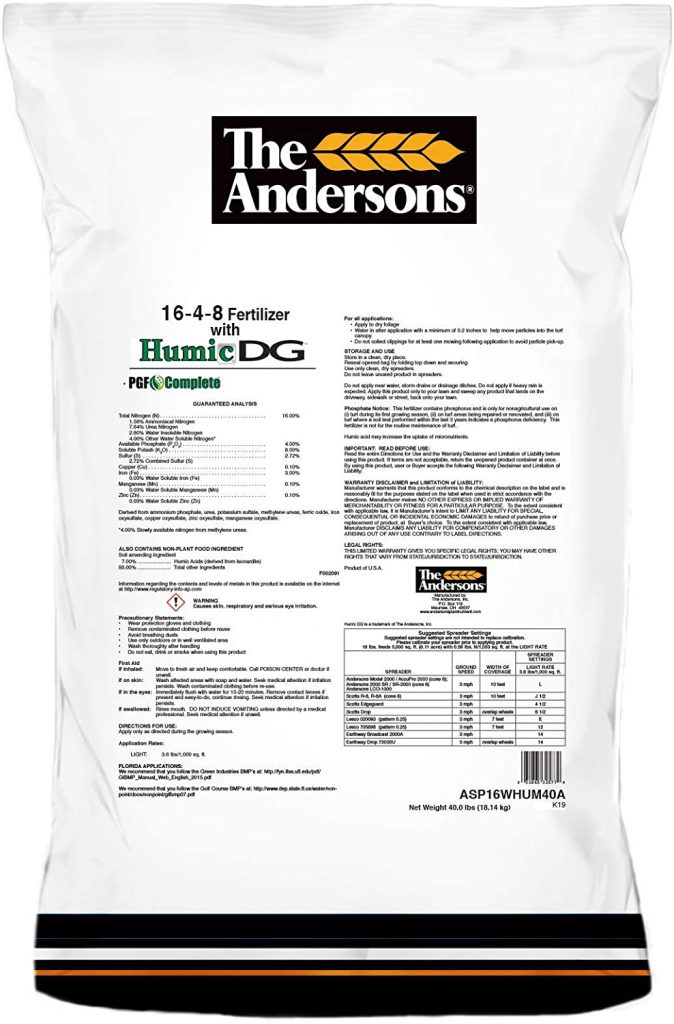
The NPK formulation of this Anderson fertilizer is 16-4-8, with a higher amount of nitrogen. A higher amount of nitrogen means you can get greener Bermuda grass lawn with added potassium and phosphorus.
If you want to avoid yellowing of your Bermuda grass, this fertilizer can prevent lack of nutrients deficiency all season long. The product can stimulate the development of chlorophyll for the green color of the leaf.
This complete fertilizer consists of fulvic acid and Humic that can help your Bermuda grass process all of the nutrients provided. These ingredients can replace the function of iron to the grass lawn so your Bermuda grass will not have an iron deficiency.
It comes in fine particles to get much more per square foot, and it is a slow-release fertilizer. Each application can continuously feed your Bermuda lawn to up to 60 days.
It is better to have a slow-release and fertilizer if fine particle because your Bermuda grass gets the nutrient consistently and gets a better distribution. This fertilizer is an excellent choice of fertilizer for your lawn as it enriches the soil.
2. Miracle-Gro Water Soluble Lawn Food
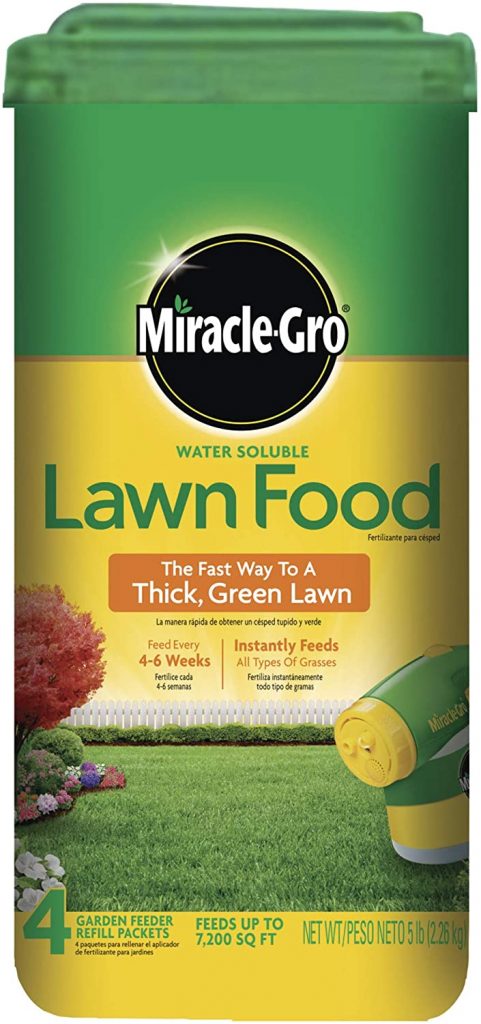
Your Bermuda grass needs fertilizer, and then you have to water them. You can do this in one practice by applying the Miracle-Gro Lawn Food.
You can expect beautiful and fast results as your lawn should begin to green in days. The ingredients of this fertilizer product are chelated iron and high amount of nitrogen. It means your Bermuda grass will get enough nutrients as needed.
The good thing about this lawn food is that you do not have to worry about your Bermuda grass being burnt as long as you apply as directed. If you apply one 5 pound box of the fertilizer, you can cover at most 4,000 square feet.
As soon as you apply the fertilizer, it feeds through both the grass blades and roots. In a matter of days, you can enjoy green Bermuda grass lawn as expected.
You can apply this lawn food every two to three weeks.
There are two ways to feed your Bermuda grass lawn. The first way is to apply one feeder refill packet to cover 1,000 square feet in approximately 12 minutes.
The second way, use a watering can by mixing one tablespoon of the lawn food for every gallon of water. It works well according to many verified purchasers.
Besides Bermuda grass, you can use it on other types of grass. The result could be beautifully green, thick and lush grass lawn.
3. Milorganite Organic Nitrogen Fertilizer
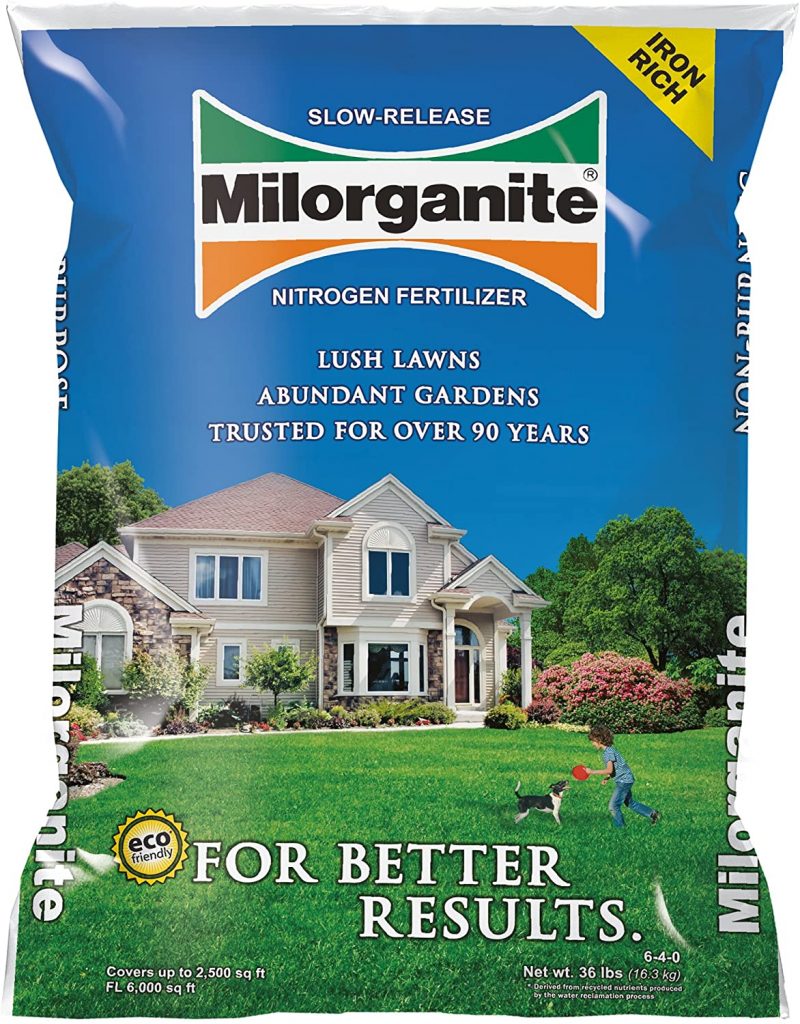
This fertilizer made by Milorganite has an NPK formulation of 6-4-0. The formulation means there is no potassium and only consists of nitrogen and phosphorus. It is the perfect formulation when you want your Bermuda grass to have a lush and green appearance.
The fertilizer product is safe for humans and pets because it does not contain the harsh chemical in the ingredient. Your dogs and kids can play on the grass lawn after application.
You can expect a fuller and thicker grass that can reduce the amount of time to mow the Bermuda grass. The grass can hold water more so you do not have to water the grass frequently.
Many golf care taker use this fertilizer for along time.
4. Scotts Green Max Lawn Food

There is a big chance that you would outduel weeds if you have a thicker Bermuda grass lawn. The advantage is, you will not need to apply weed killer to get rid of them.
This Green Max from Scotts can provide your Bermuda grass lawn greener and thicker leaf. It is a fast-acting fertilizer for a lawn that can give results in as soon as three days.
The fertilizer NPK formulation is 33-0-2, which means it consists of a high amount of nitrogen. There is no potassium and little amount of phosphorus.
The fertilizer has iron supplements to provide chlorophyll, which is very important for photosynthesis.
5. Scotts Turf Builder Lawn Food – Lawn Fertilizer Feeds and Strengthens Grass
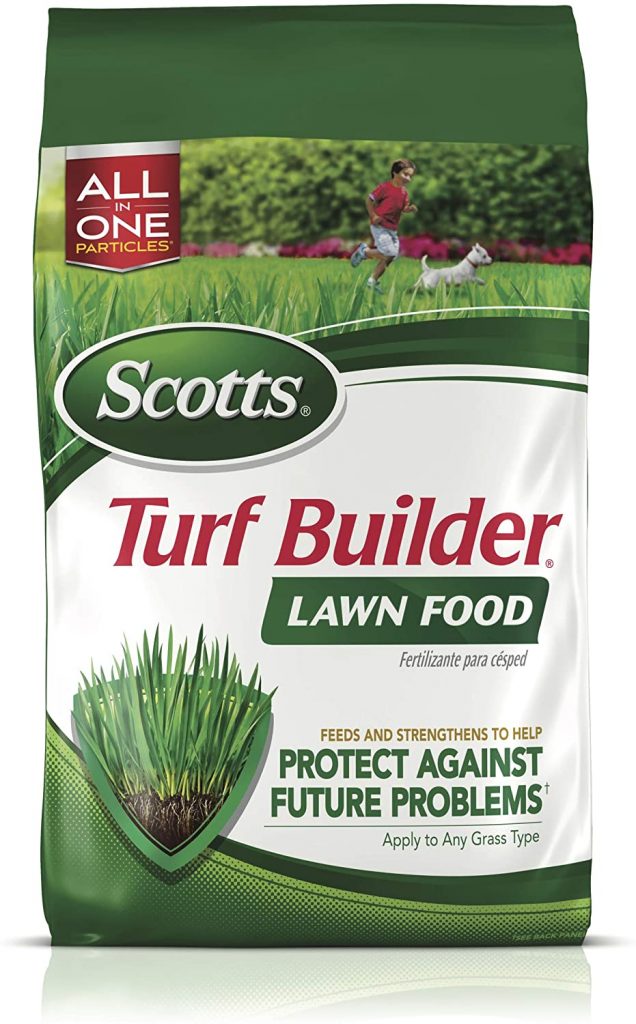
If you have a plan to feed as well as strengthen your Bermuda grass, the Scotts’ Turf Builder Lawn Food can provide you reach your goal. You build up your lawn and create a great looking Bermuda grass lawn.
When you achieve the goal, you will have fewer problems in the future. You can expect roots that grow deeper and can become stronger each day.
With this feature, your grass can absorb water and nutrients better. You can apply this all-in-one particle fertilizer for all types of grass, such as Centipede grass, St Augustine grass, Palmetto grass, and so on.
To apply this fertilizer on your grass, you need a fertilizer spreader. You can apply 2.5 pounds per 1,000 square feet of a grass lawn.
6. Scotts Turf Builder WinterGuard Fall Lawn Food

There is a dormant period for Bermuda grass during the winter month. You need to protect your grass even though it is not growing while the roots are still in the soil.
This WinterGuard Lawn Food is ideal for applying in the fall month. Since the roots are still in the soil, they will be more durable by using this fertilizer. You can expect more profound growth during the summer months and spring months next year.
Bermuda grass can be fertilized during the fall to provide lush and thick grass next season. Sometimes you see damages to the grass caused by foot traffic, heat, and drought. This fertilizer can help repair these damages and can prepare the roots to handle the winter weather better.
When there is rainfall, the fertilizer can assist the lawn in absorbing more water.
7. Simple Lawn Solutions Extreme Grass Growth Lawn Booster
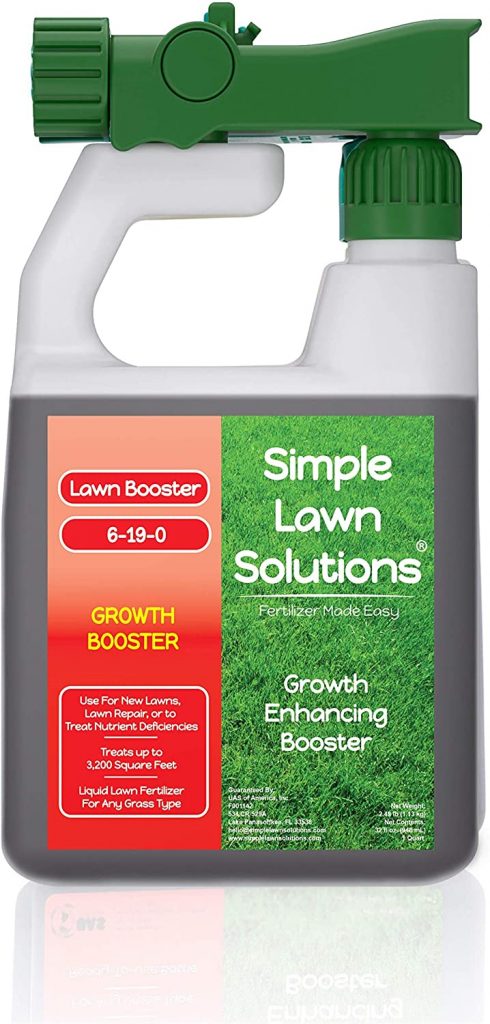
The NPK formulation of this Concentrated Fertilizer from Simple Lawn Solutions fertilizer is 6-19-0, which means it is high in phosphorus, with enough nitrogen and no potassium. Nitrogen promotes green color and vigorous growth of healthy grass. Phosphorus is essential for early plant development, root health, and helps the grass fight disease.
Instead of iron, the fertilizer consists of fulvic and humic acid, which generates beneficial soil microbes fast and neutralize many toxic conditions in soils. These ingredients keep nutrients and moisture in the root zone longer and help the plant make better use of them.
You can be sure that this fertilizer works very well on Bermuda grass as well as many grass types, including Palmetto grass, Centipede grass, Bluegrass, Buffalo grass, St. Augustine grass, and Zoysia grass.
You can let your dogs and kids play out on your Bermuda grass lawn after application because it is organic and safe.
8. Simple Lawn Solution Advanced 16-4-8 Balanced NPK
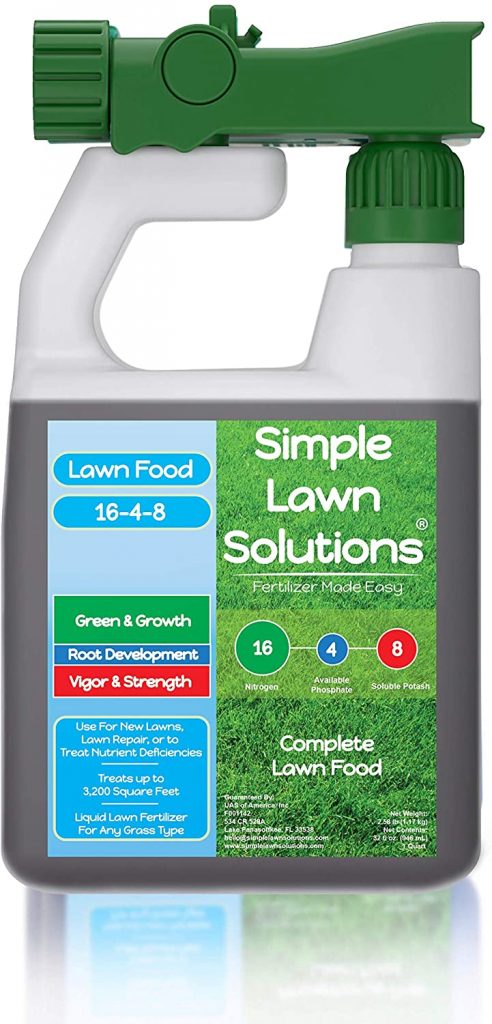
Once you see your Bermuda grass lawn look yellow, you can use this Advanced Liquid Fertilizer from Simple Lawn Solutions to quickly fix the problem. This product is a balanced and complete lawn food NPK formulation of 16-4-8.
You can cover 3,200 square feet of your Bermuda grass lawn with one 1.17 kg of the container. Using this natural and organic fertilizer means that you want to avoid a lot of chemicals, and it is safe for humans and pets.
This liquid fertilizer works well for Bermuda grass as well as Centipede grass, Buffalo grass, Zoysia grass, and Bahia varieties. You can quickly apply this fertilizer product because it comes with a sprayer and all you have to do is to attach to your garden hose to the spray head, and you are ready to go.
There are also fish and seaweed in the ingredient. The seaweed and fish contain trace elements like iron, magnesium and zinc oxide to support plant health, root development and will help fight fungi. You can expect to get thick and lush Bermuda grass lawn year after year.
When is the best time to fertilize your Bermuda grass and how much fertilizer for your Bermuda grass?
1. March through May
Start fertilizing after the Bermuda grass (Cynodon Dactylon) turns green and there is no frost. Test the soil to discover what nutrients your lawn needs.
If you do not want to test the soil, apply a 3-1-2 ratio of nitrogen, phosphorus and potassium. Apply one pound of nitrogen per 1,000 square feet of Bermuda grass lawn every 30 to 45 days. You can also apply 11/2 pounds of slow-release nitrogen fertilizer every 60.
2. June through August
It would help if you continued the fertilizer program started in the spring. Apply one to 11/2 pounds of nitrogen per 1,000 square feet every 30 to 75 days.
It would be best if you use a fertilizer that contains nitrogen only or 21-0-0, ammonium sulfate. You can also use fertilizer low in phosphorus (21-3-6 or 15-0-15) to avoid excessive phosphorus build-up in the soil. These build-ups can cause deficiencies in zinc and iron.
3. September through February
Do not fertilize your Bermuda grass (Cynodon Dactylon) in this period unless the lawn has been overseeded. The Bermuda grass lawn must be fed once in December and again in February.
Apply 1/2 pound of nitrogen per 1,000 square feet (using a nitrogen-only fertilizer).